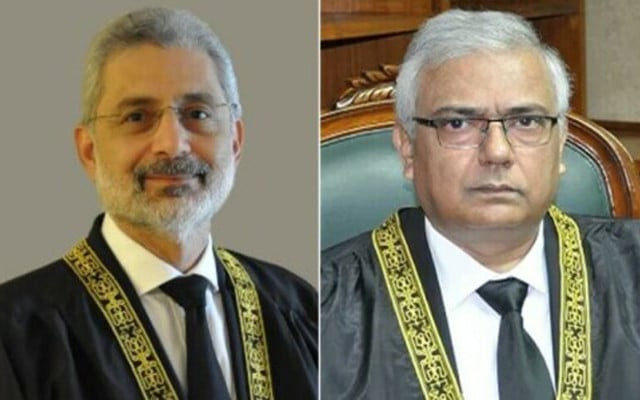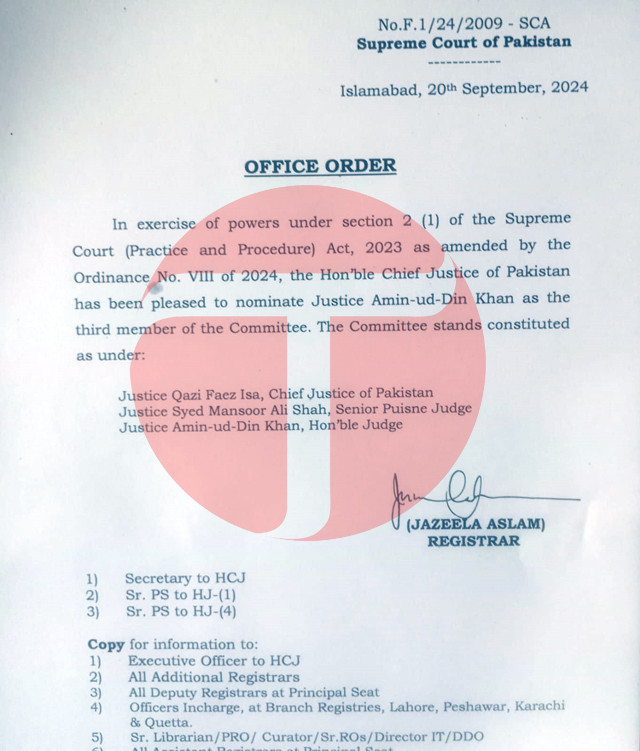CJP picks Justice Aminuddin as third member of key committee under new ordinance
Move follows the promulgation of an ordinance on the Supreme Court Practice and Procedure Act

Chief Justice of Pakistan Qazi Faez Isa has nominated Justice Aminuddin Khan as the third member of the committee tasked with forming benches and fixing cases under Article 184(3) of the Constitution.
This move follows the promulgation of an ordinance on the Supreme Court Practice and Procedure Act, which aims to enhance transparency in Pakistan’s judicial process.
The committee, established under the newly amended Practice and Procedure Act, will be led by the chief justice, with the senior puisne judge (Justice Mansoor Ali Shah) and a third senior judge as members. The ordinance grants the Chief Justice the discretion to nominate a Supreme Court judge as the third member of this committee as needed.

Earlier in the day, Federal Minister for Information, Broadcasting, National Heritage, and Culture, Attaullah Tarar, announced the ordinance’s promulgation, noting that it had been approved by the federal cabinet and enacted by President Asif Ali Zardari. Tarar emphasised that one of the key aims of the ordinance is to address delays in case hearings, which have often occurred due to the unavailability of a third committee member in Islamabad.
Tarar outlined the ordinance's significant provisions, including the implementation of a strict “first come, first served” principle in the courts. "The case that comes first will be taken up first by the court, and the cases coming after will be fixed according to their number," he explained.
A notable change introduced by the ordinance is the requirement to document why a case under Section 184(3) of the Constitution is deemed a matter of public importance before it is heard by the court. A formal order must clarify whether the case involves public interest or human rights issues.
Additionally, the ordinance grants the right of appeal for any orders passed by the Supreme Court under Section 184(3). To further enhance transparency, the ordinance mandates that a complete transcript of court proceedings, including judges’ remarks and observations, be prepared and made accessible to the public. "This step has been taken to make the judicial process more transparent," Tarar remarked.
The minister also brought attention to a pending petition regarding the review of Article 63-A, stressing the urgency of a decision. "Some decision should have come regarding the revision of 63-A as it is an important matter," he said.
The ordinance represents a significant step in the government's efforts to improve the efficiency and transparency of Pakistan’s judiciary, while also addressing key legal issues that have remained unresolved.



















COMMENTS
Comments are moderated and generally will be posted if they are on-topic and not abusive.
For more information, please see our Comments FAQ